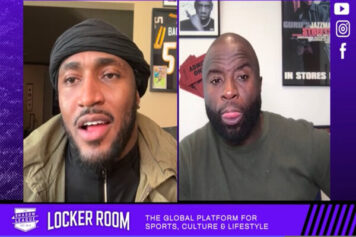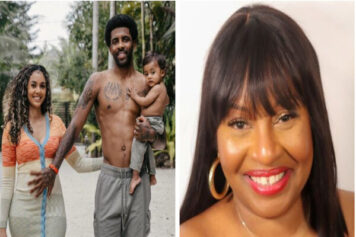Even in a league that is mostly black, Korver acknowledges the existence of white privilege.
On Monday, the Utah Jazz’s Kyle Korver took a bold step as a white player in the NBA, a league that is 70 percent African-American.
In a piece in The Player’s Tribune, Korver was brutally honest about his role in, and duty to fight against, racism.
When it comes to American sports there is a long history of media, promoters, players, fans and even coaches playing up racial indifference in order to hype a particular contest or event. This is especially prevalent in combat sports, where athletes like Conor McGregor make a career out of racism and Islamophobia.
But it’s not exclusive to one particular sport. No, the industry is rife with examples where race and ethnicity are woven into the game. From nicknames such as “The Brown Bomber” and team names like the Redskins to mascots like Chief Wahoo and actions like “the Chop” at Florida State, race and sports go hand in hand.
This is why it’s so necessary for athletes to stand up, point out racism and break stereotypes.
And when it’s done by white athletes, it’s sometimes even more impactful, and, honestly, refreshing.
This is why Korver’s piece was both powerful and surprising. Through a sincere reflection, Korver accessed his own privilege after taking deep personal inventory of how he reacted when then Atlanta Hawks’ teammate Thabo Sefolosha was literally bum-rushed by NYPD and suffered a season-ending injury. He juxtaposed this incident against his reaction when Russell Westbrook came at a fan who it was later revealed said something racially insensitive to him during a game.
I still remember my reaction when I first heard what happened to Thabo. It was 2015, late in the season. Thabo and I were teammates on the Hawks, and we’d flown into New York late after a game in Atlanta. When I woke up the next morning, our team group text was going nuts. Details were still hazy, but guys were saying, Thabo hurt his leg? During an arrest? Wait — he spent the night in jail?! Everyone was pretty upset and confused.
My first thought was: What was Thabo doing out at a club on a back-to-back??
Yeah. Not, How’s he doing? Not, What happened during the arrest?? Not, Something seems off with this story. Nothing like that. Before I knew the full story, and before I’d even had the chance to talk to Thabo….. I sort of blamed Thabo.
I thought, Well, if I’d been in Thabo’s shoes, out at a club late at night, the police wouldn’t have arrested me. Not unless I was doing something wrong.
Cringe.
Korver is 38-years-old. He’s been playing basketball for the overwhelming majority of his life and has, more than likely, played with many Black players throughout his entire career.
So for him to be realizing the depths of his privilege after almost 4 decades on the planet is telling but also chilling. For every Kyle Korver, there are scores more like him that wouldn’t even entertain the thought of penning such a piece. But to his credit, he addressed it head on, both personally and through the incidents involving Thabo and Westbrook, the latter which he reflected upon below.
I didn’t actually see or hear what happened, and if you were following on TV or on Twitter, maybe you had a similar initial viewing of it. Then, after the game, one of our reporters asked me for my response to what had gone down between Russ and the fan. I told him I hadn’t seen it — and added something like, But you know Russ. He gets into it with the crowd a lot.
Of course, the full story came out later that night. What actually happened was that a fan had said some really ugly things at close range to Russ. Russ had then responded. After the game, he’d said he felt the comments were racially charged.
The incident struck a nerve with our team.
One teammate said the night felt like being “in a zoo.” One of the guys in the meeting was Thabo — he’s my teammate in Utah now. I looked over at him, and remembered his night in NYC.
Everyone was upset. I was upset — and embarrassed, too. But there was another emotion in the room that day, one that was harder to put a finger on. It was almost like….. disappointment, mixed with exhaustion. Guys were just sick and tired of it all.
Perhaps hopelessness would have been a better term for Kyle to use to describe the overall feeling of malaise that permeated the players only meeting that day.
“And one big thing that got brought up a lot in the meeting was how incidents like this — they weren’t only about the people directly involved. This wasn’t only about Russ and some heckler. It was about more than that. It was about what it means just to exist right now — as a person of color in a mostly white space. It was about racism in America.”
Bingo!
At the end of the day, whenever white incivility toward Black is plastered across the nightly news, those who dwell in black spaces but enjoy white privilege must speak up. Failure to do so is a crushing failure for humanity.
“What I’m realizing is, no matter how passionately I commit to being an ally, and no matter how unwavering my support is for NBA and WNBA players of color….. I’m still in this conversation from the privileged perspective of opting in to it. Which of course means that on the flip side, I could just as easily opt out of it. Every day, I’m given that choice — I’m granted that privilege — based on the color of my skin.”
And skin color is something that can never be hidden, something white privilege can always exploit.



